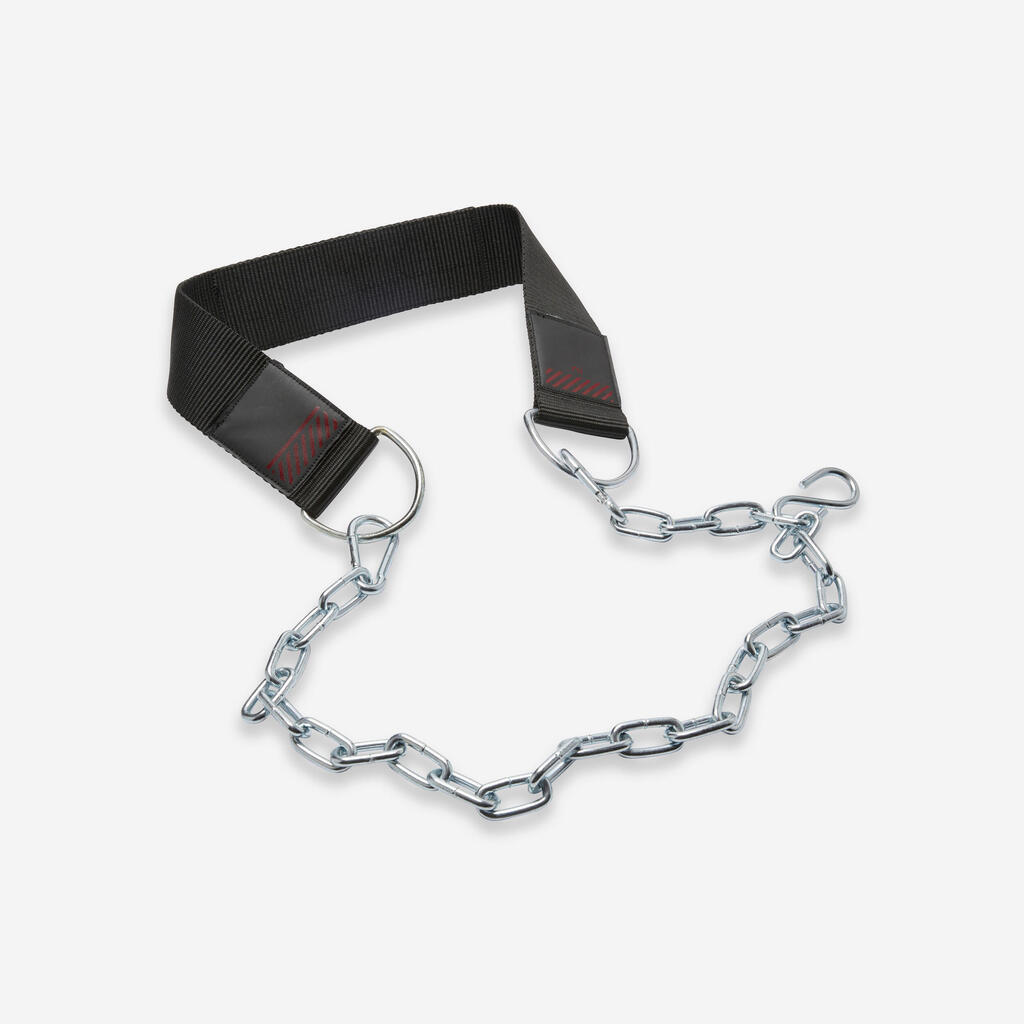Description of the weighted belt and max load
- Weight of weighted belt: 1.206 kg
- Chain length: 795 mm / 79.5 cm
- One size
Our weighted belt allows you to perform dips and pull-ups with an additional weight of up to 120 kg.
Why use a weighted belt?
Exercises using body weight are effective for safely building muscle. However, the main disadvantage is often that it is difficult to progress. With our belt, you can add a load of up to 120 kg, intensifying each movement and stimulating muscle growth.
No matter your practice, whether cross training, street workouts, or strength training, this belt can adapt to everyone and every goal.
What exercises is this weighted belt best suited for?
With a weighted belt, you can do the following exercises:
- pull-ups (on bars and/or rings),
- dips (on bars and/or rings),
- strict muscle-ups (on bars and/or rings),
- squats on a box.
How to put on a weight training belt
Check that your belt is positioned correctly on your hips. If it is too high on the lower belt, it can force your hips to turn and hollow your back.
In addition to placing it over the glutes, be sure to centre it precisely. Ensure that the two ends of the belt are at the same height. Otherwise, the weight will exert unequal pressure on your body, which can cause imbalances, and in the worst cases, injuries.
Get equipped and improve more quickly
Use our 50 mm diameter discs to add challenge to your body weight exercises:
- 5 kg Plate (ref: 8491309)
10 kg Plate (ref: 8484126)
- 20 kg Plate (ref: 8484128)
Note that plates with a diameter under 50 mm can be difficult to insert into the chain on your belt.
Our coach's recommended exercises to help you improve (1/3)
Workout for improving pull-ups:
- Weighted pull-up: 3 sets of 3-5 reps
- Pull-up (weighted or body weight, depending on level): 2 sets of 8-10 reps
- Rowing, supinated grip: 3 sets of 8-10 reps
- Face pull: 2 sets of 15-20 reps
- Dumbbell curl, hammer grip: 3 sets of 10-12 reps
Our coach's recommended exercises to help you improve (2/3)
Workout for improving dips:
- Weighted dips: 3 sets of 3-5 reps
- Dips (weighted or body weight, depending on level): 2 sets of 8-10 reps
- Bench press, close grip: 3 sets of 8-10 reps
- Seated press with dumbbells: 3 sets of 10-12 reps
- Triceps, high pulley: 3 sets of 12-15 reps
Tips from our coach (3/3)
For each exercise, start with the minimum number of reps (avoid failure and keep a 2 rep margin) and add one rep each week until you reach the upper limit. Next, increase the amount of weight you use.
When you increase the weight, start again from the lower limit and work up to the higher limit, then repeat the process.





